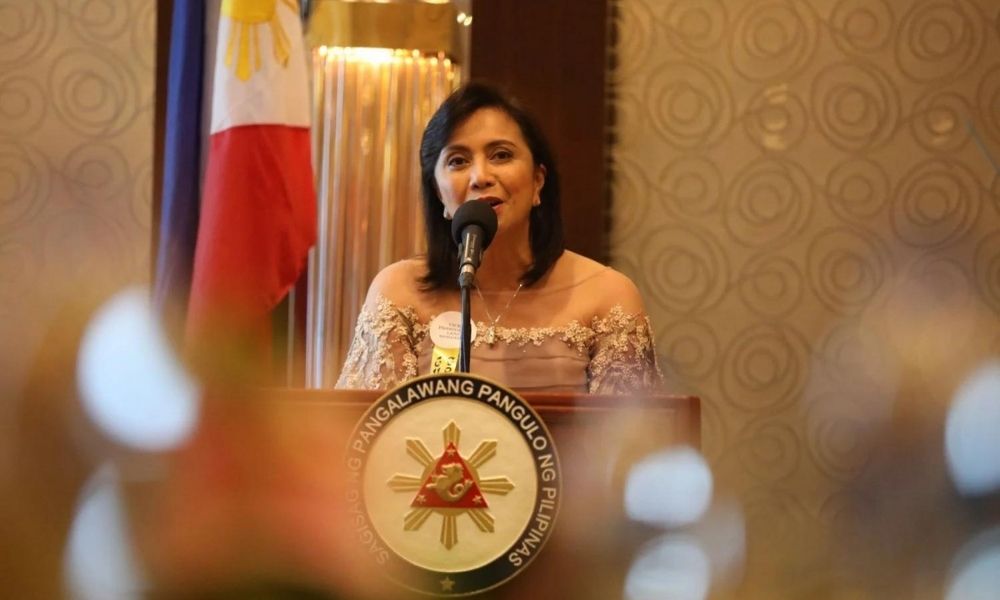
(Bloomberg) -- Philippine investors are lukewarm to the prospect of a Ferdinand “Bongbong” Marcos presidency, with Vice President Leni Robredo emerging as their top pick to oversee an economic rebound, according to a Bloomberg poll.
A survey of 28 investors and analysts -- when asked whom they think is the best person to lead the Southeast Asian economy -- gave Robredo the highest score of 106. Senator Panfilo Lacson came in second with a score of 91, followed by Manila Mayor Isko Moreno with 81.
Marcos and Senator Manny Pacquiao were at the bottom with a score of 46 and 44, respectively. Respondents were asked to rank the five candidates on a scale of 5 to 1, with 5 as the top score.
Robredo, who trails Marcos in most voter surveys for the May 9 presidential election, has pledged to prioritize stamping out corruption and enabling pandemic recovery and job creation.
Marcos, the son and namesake of the late dictator who ran the Philippines when it declared bankruptcy in 1983, vowed to aid the farm sector, improve traffic flow on Manila’s roads, push for the use of renewable energy and fight communist insurgency.
At stake is the revival of the Philippine economy, among the fastest-growing in the world in the last decade until the pandemic cut hundreds of thousands of jobs and triggered a record contraction.
President Rodrigo Duterte, who is limited by law to a single six-year term, is targeting expansion of as much as 9% this year.
“What we need is a captain who will bring us out of the storm,” said Jonathan Ravelas, chief market strategist at Philippines largest lender BDO Unibank Inc.
“The next leader must be able to address the economic and social crises we are confronting, to put us back on the path to faster growth.
How our markets will perform will depend greatly on that.”
Almost all the respondents in the survey conducted from late February to early March predicted an economic expansion of at least 6% can be sustained in the next six years.
Managing the pandemic and cooling inflation are the biggest priorities for the next administration, according to poll results. Identities of the respondents and the institutions they represent are withheld.
“If [Marcos] is elected, it would only reinforce our view that the economy will continue to underperform over the coming years,” Alex Holmes, Asia economist at Capital Economics Ltd., wrote in a February note, citing his tax case and a lack of achievements when he was senator.
Marcos’ camp said he’s qualified to be president despite the tax conviction.
Marcos led a January survey by Pulse Asia Research Inc. with 60% of 2,400 respondents while opposition leader Robredo came in second with 16%. Moreno, Pacquiao and Lacson polled below 10% in the Pulse Asia poll. Robredo narrowly defeated Marcos in the 2016 vice presidential election, which the latter had protested.
“Marcos, in our view, will likely be regarded as less market-friendly than Robredo, particularly when it comes to experience at the national level and in articulating a strategy for the country to recover from the pandemic,” Nomura Holdings Inc. economists including Sonal Varma wrote in a January report.
Domestic factors such as the policies of the next government will be the biggest drivers of the performance of Philippine markets.
The peso, the worst performer in Southeast Asia this month, will likely stay below the 52-per-dollar level by the end of the year, according to the Bloomberg survey.
The peso, which has weakened 2.5% this year, traded near its Sept. 2019 low at 52.29 on Friday.
The benchmark stock index, which has fallen almost 10% since Duterte took office in 2016, is forecast to rise above the 7,500 level by the end of the year while 10-year bond yields are seen to hold at above 5%, the poll showed.
The Philippine Stock Exchange Index closed at 7,112.19 on Friday while 10-year rate on the secondary market was at 5.4801%.